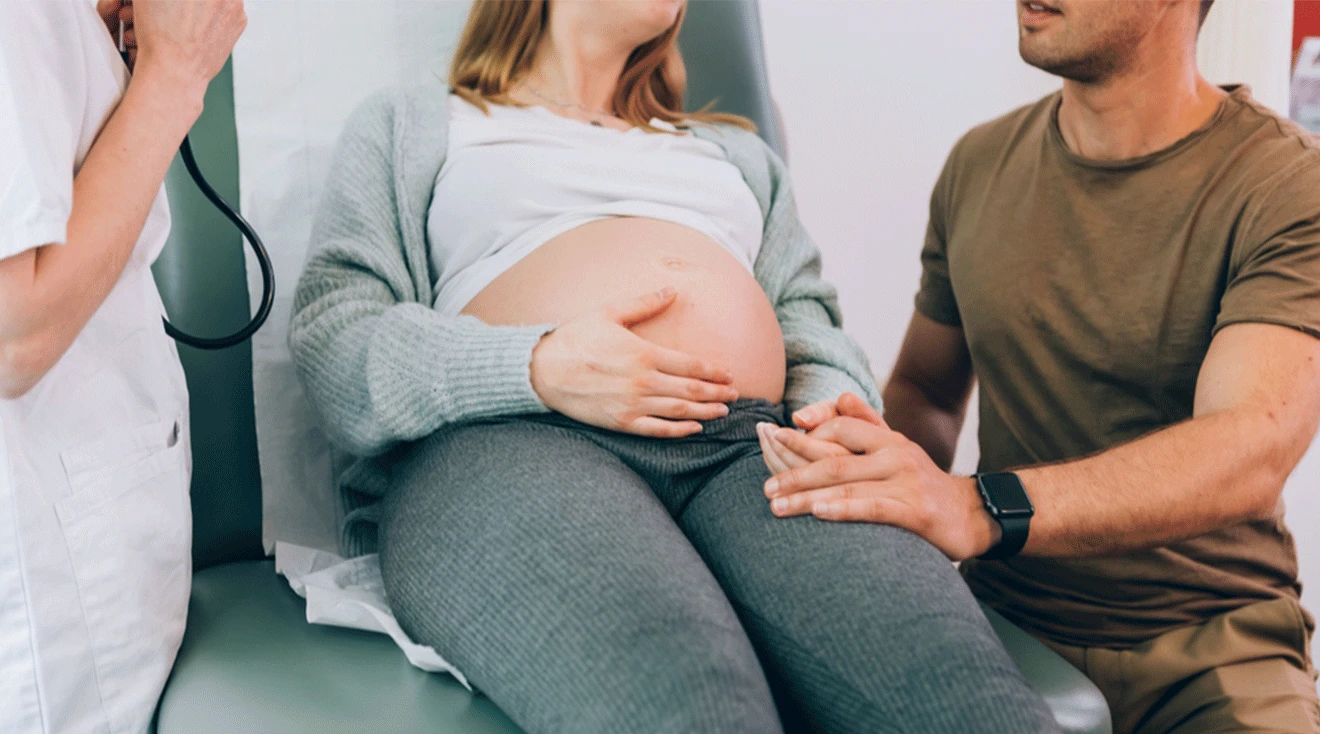
New Research Identifies Nearly 300 Treatable Genetic Conditions
Researchers hope the new list of identifiable conditions—treatable during or after pregnancy—will help families prepare for what’s ahead and give their babies the best possible start.

Researchers hope the new list of identifiable conditions—treatable during or after pregnancy—will help families prepare for what’s ahead and give their babies the best possible start.

“The ability to diagnose and treat nearly 300 actionable genetic conditions in fetuses and newborns marks a significant milestone in modern medicine. From traditional heel stick tests to cutting-edge genomic sequencing, these advances empower families with critical information and life-saving options. As research continues to evolve, integrating these technologies into routine prenatal and neonatal care … Continued
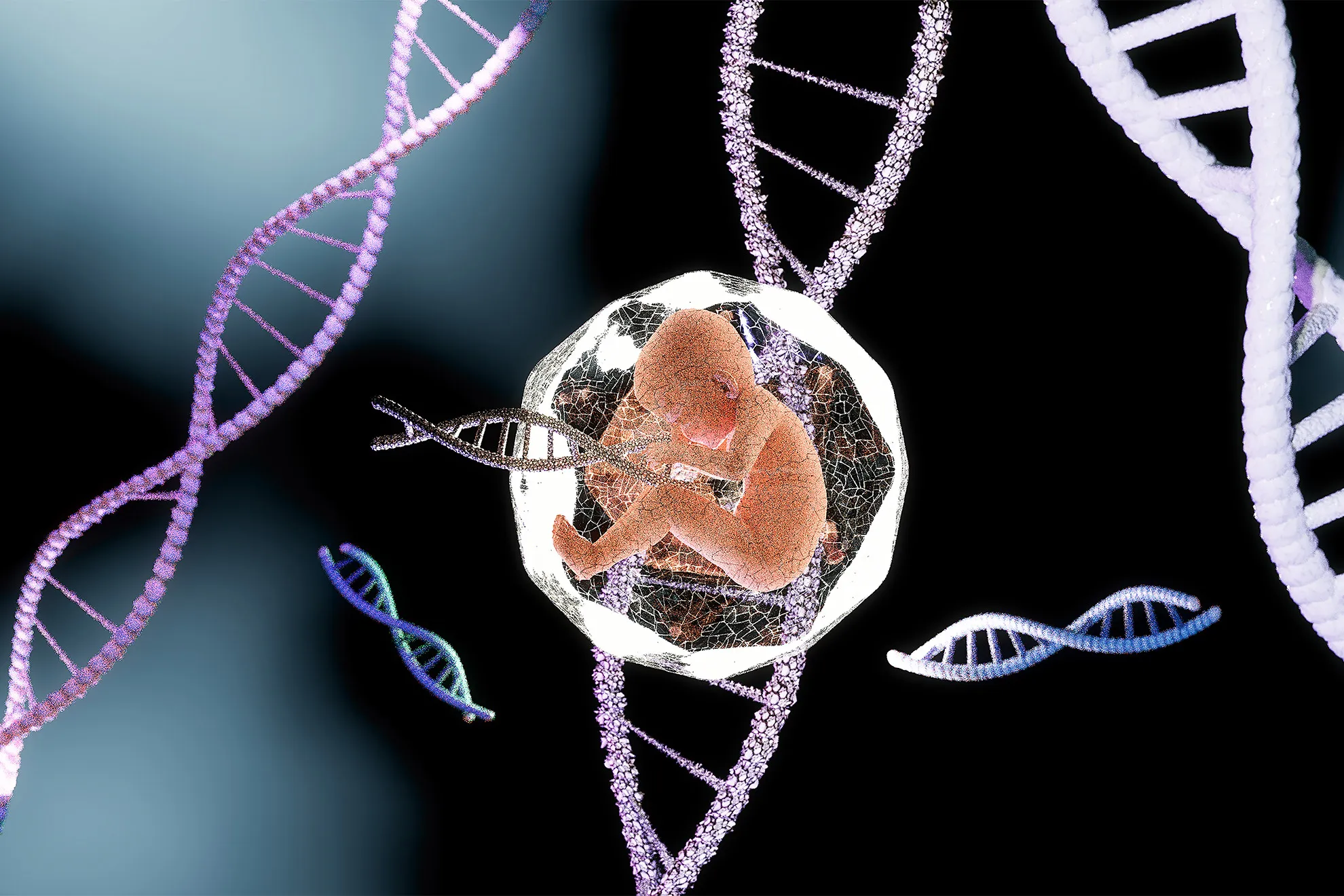
“We saw a critical gap in prenatal care and an opportunity to define the genetic disorders that are treatable during this time,” said senior author Nina Gold, director of Prenatal Medical Genetics at Massachusetts General Hospital and an assistant professor of pediatrics at Harvard Medical School. “These conditions are actionable — meaning that, empowered with … Continued
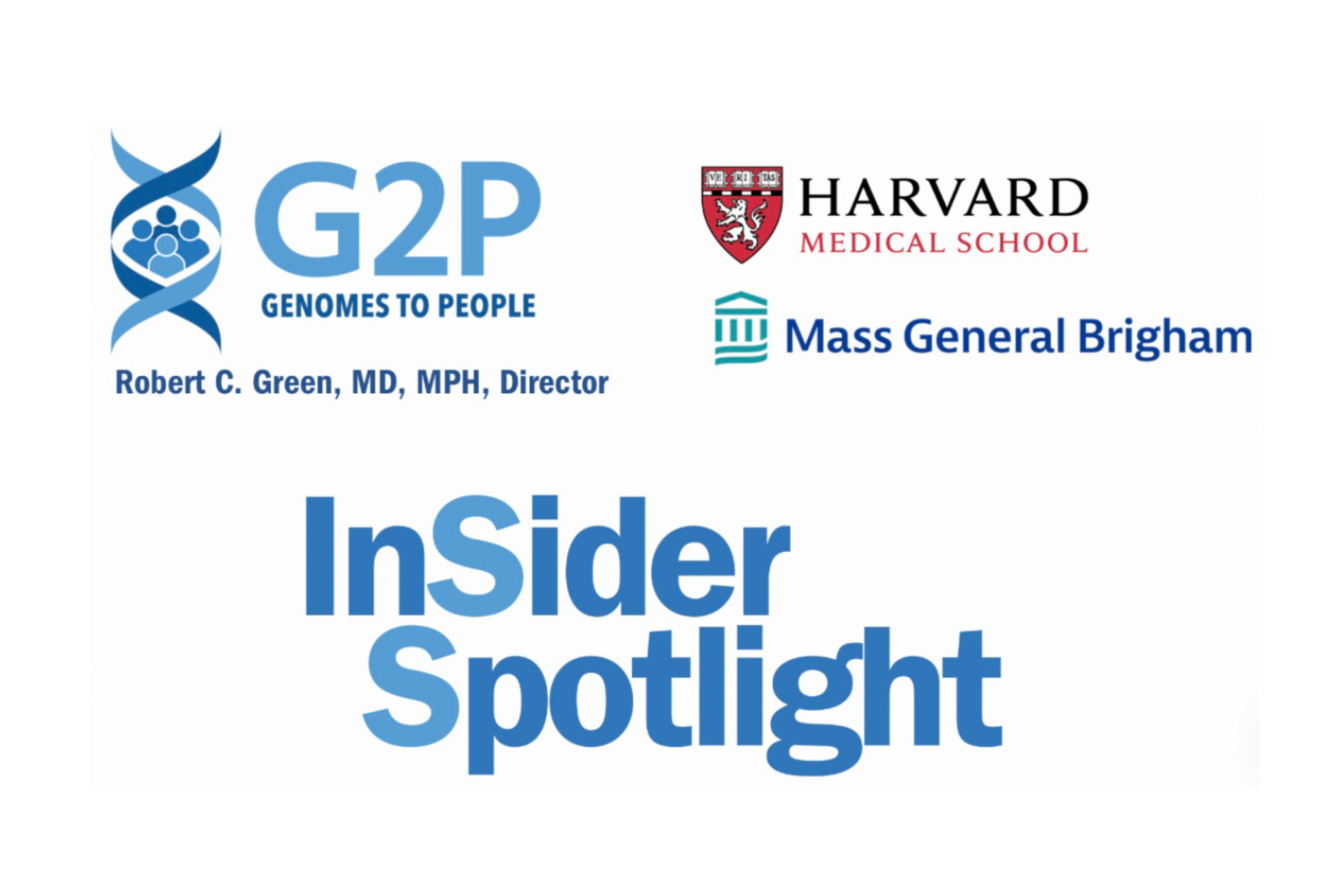
BabySeq is everywhere! This G2P newsletter highlights several upcoming speaking engagements where G2P team members and collaborators will be presenting on the latest newborn sequencing research. Nina Gold, MD and Julie Yeo will be presenting on their recent work at ACMG 2025 in LA. Robert C. Green, MD, MPH will be speaking at NextMed Health, … Continued
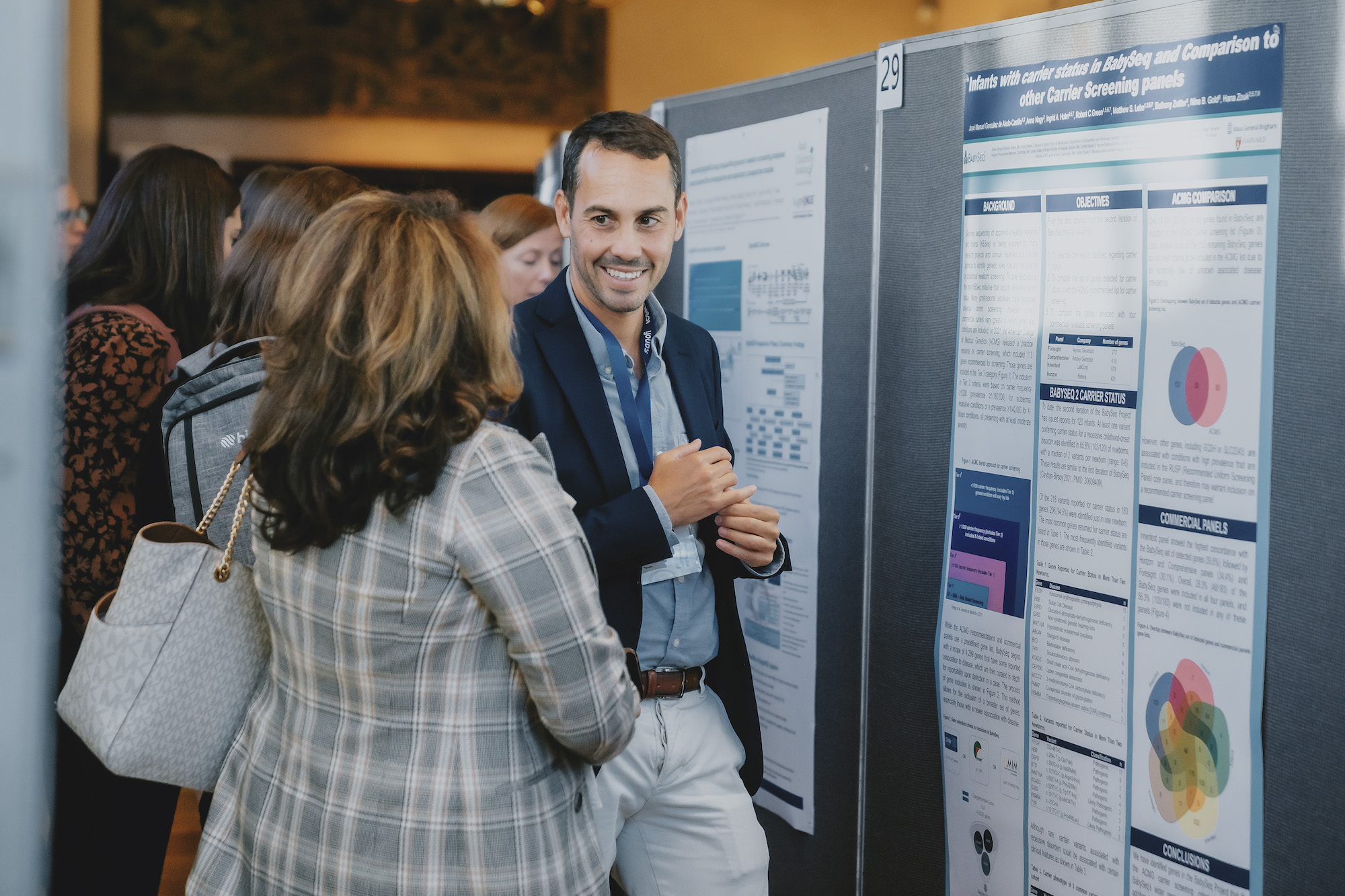
José Manuel González de Aledo Castillo, PhD reflects on his experience rotating with the Genomes2People research program and working on the BabySeq project for a year as part of the IFCC Professional Exchange Program (PSEP). During his rotation, he supported recruitment, genomic analysis, and return of results for the BabySeq project. He also presented results … Continued
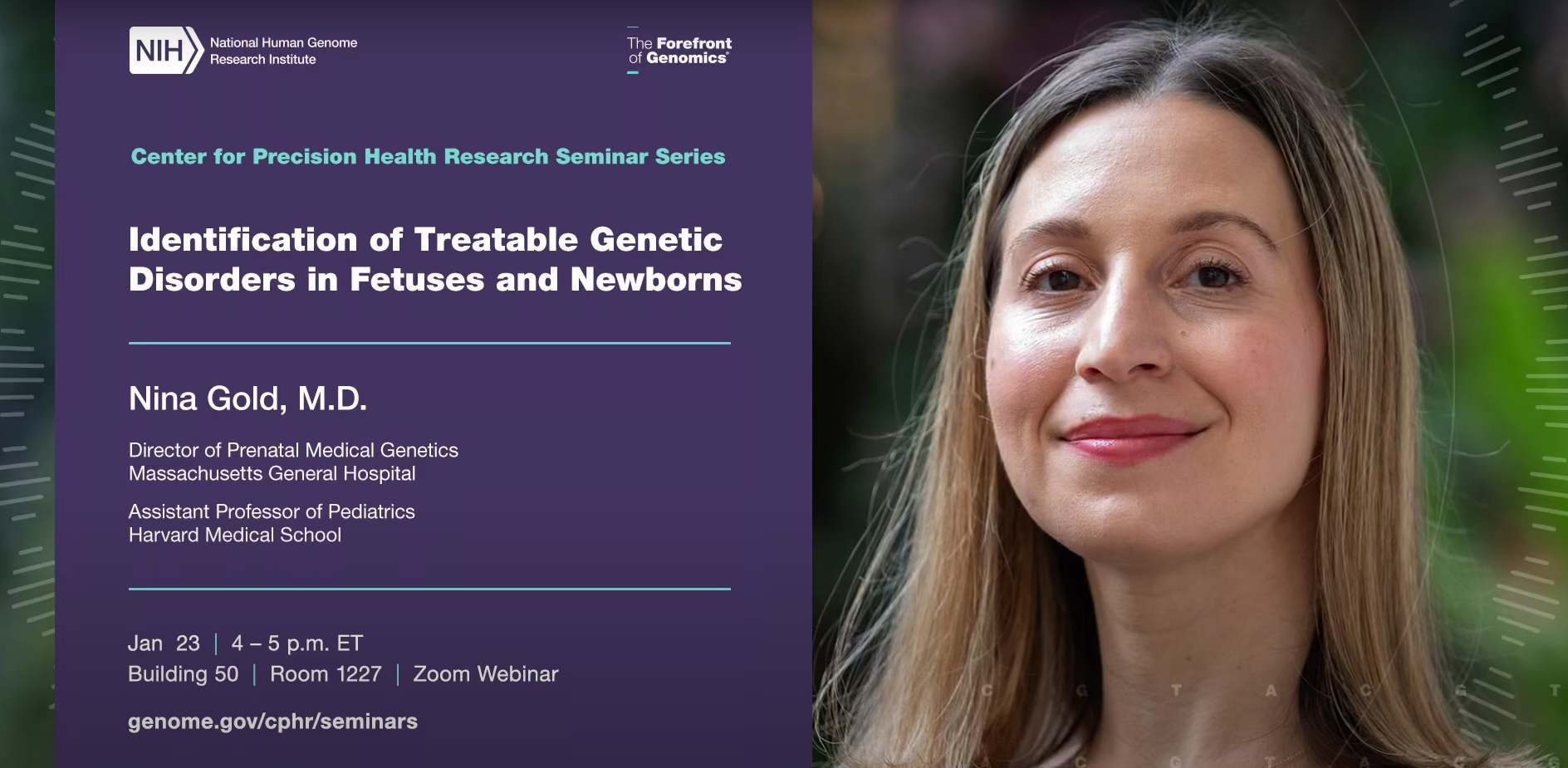
Over the past decade, genomic sequencing has become a tool for understanding the genetic underpinnings of sonographic abnormalities detected during pregnancy. However, many genetic conditions do not cause detectable physical changes, but can still have profound implications for the health of the fetus or newborn. In this talk, Dr. Gold will discuss a proposed framework … Continued
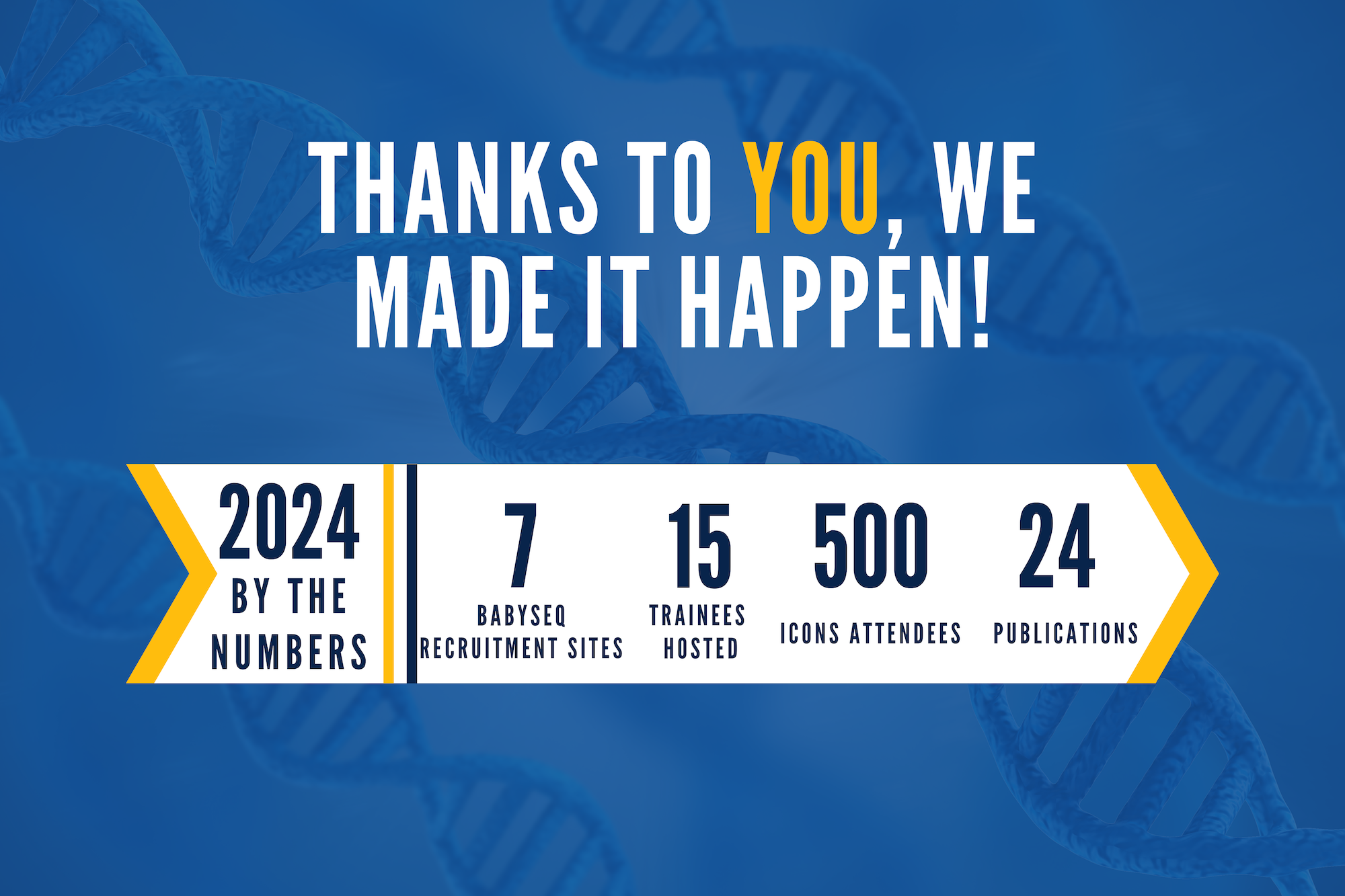
Thanks to you, we made it happen! Extending a heartfelt thank you for your support of the Genomes2People Research Program in 2024. This newsletter highlights milestones in 2024, including expanding the BabySeq project to 7 sites nationwide, hosting 15 research trainees, contributing to a successful International Conference on Newborn Sequencing, and completing the first ever … Continued
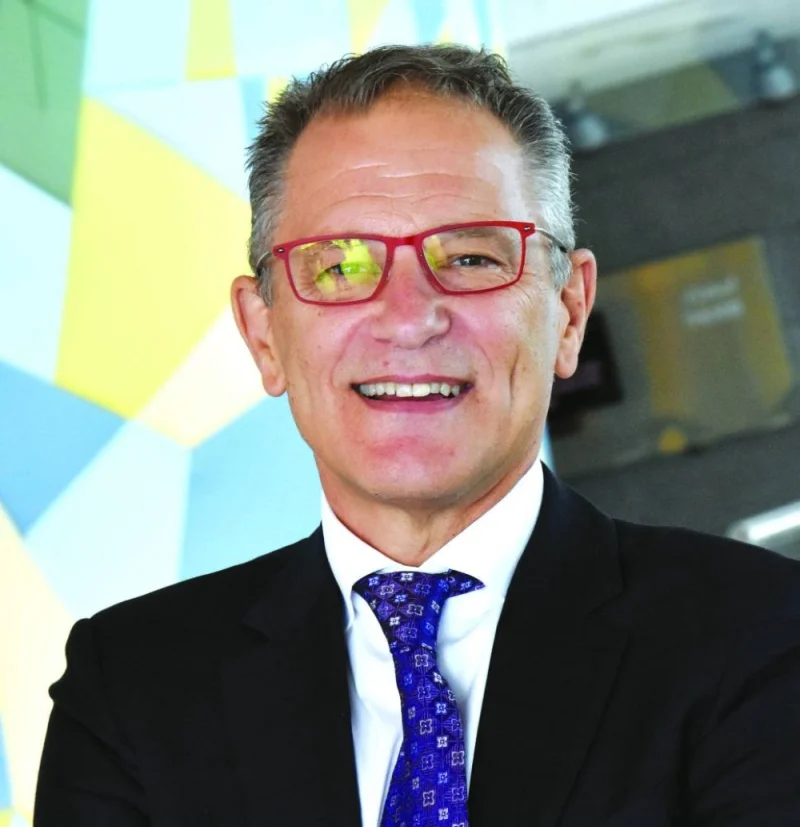
Robert Green, MD, MPH was interviewed by Gulf Times at the recent Precision Medicine and the Future of Genomics (PMFG) Summit in Doha, Qatar. Dr. Green discusses findings from the BabySeq Project and the potential for Qatar to be leader in genomics and precision medicine.
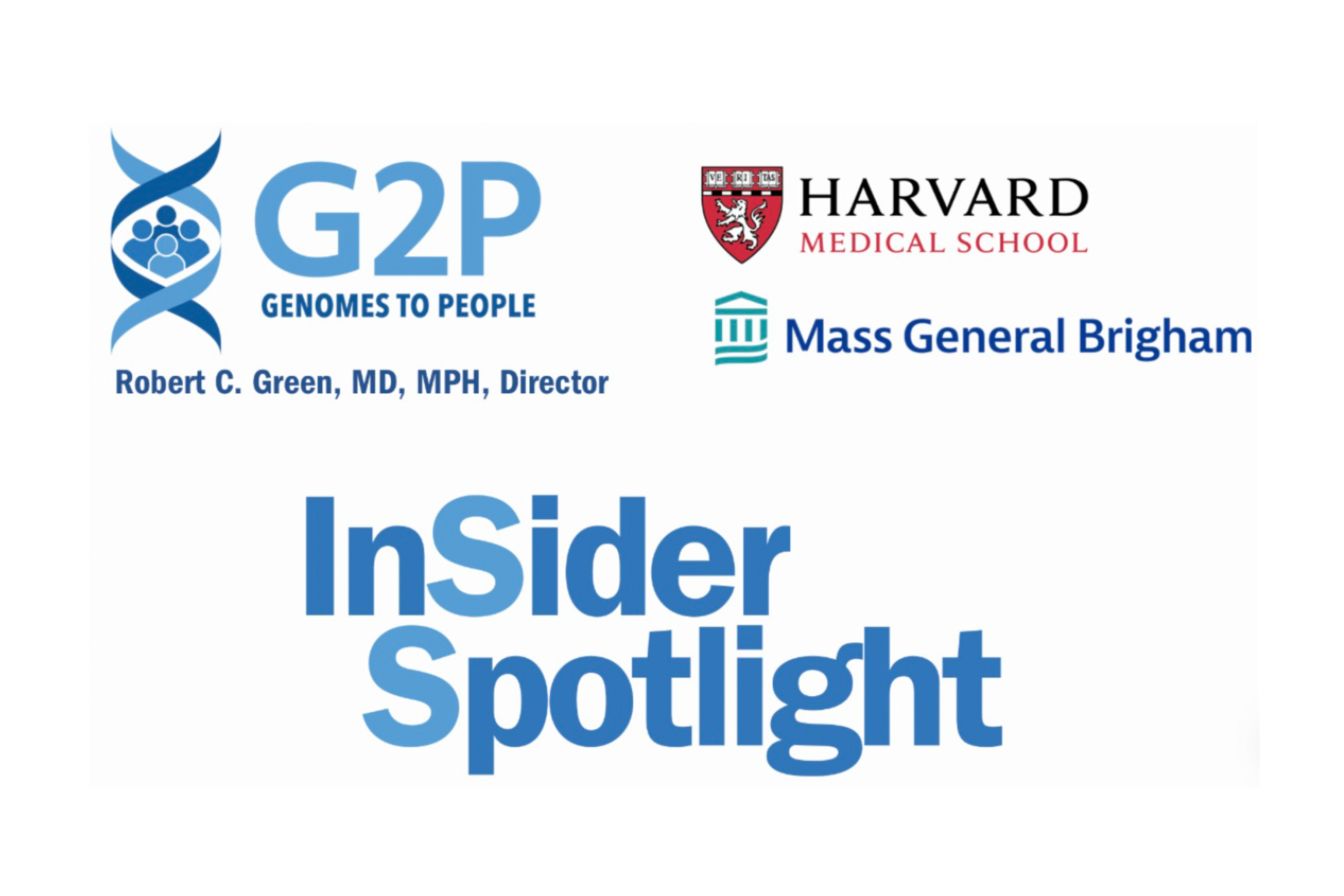
Our September newsletter features the 2024 meeting of the International Consortium on Newborn Sequencing, a recent publication in Nature Medicine featuring the BabySeq Project and a new blog post from guest blogger, Rev Carolyn Philstrom, about her son’s newborn screening story. We also highlight a recent article about the long-standing mentorship between Drs. Robert Green … Continued
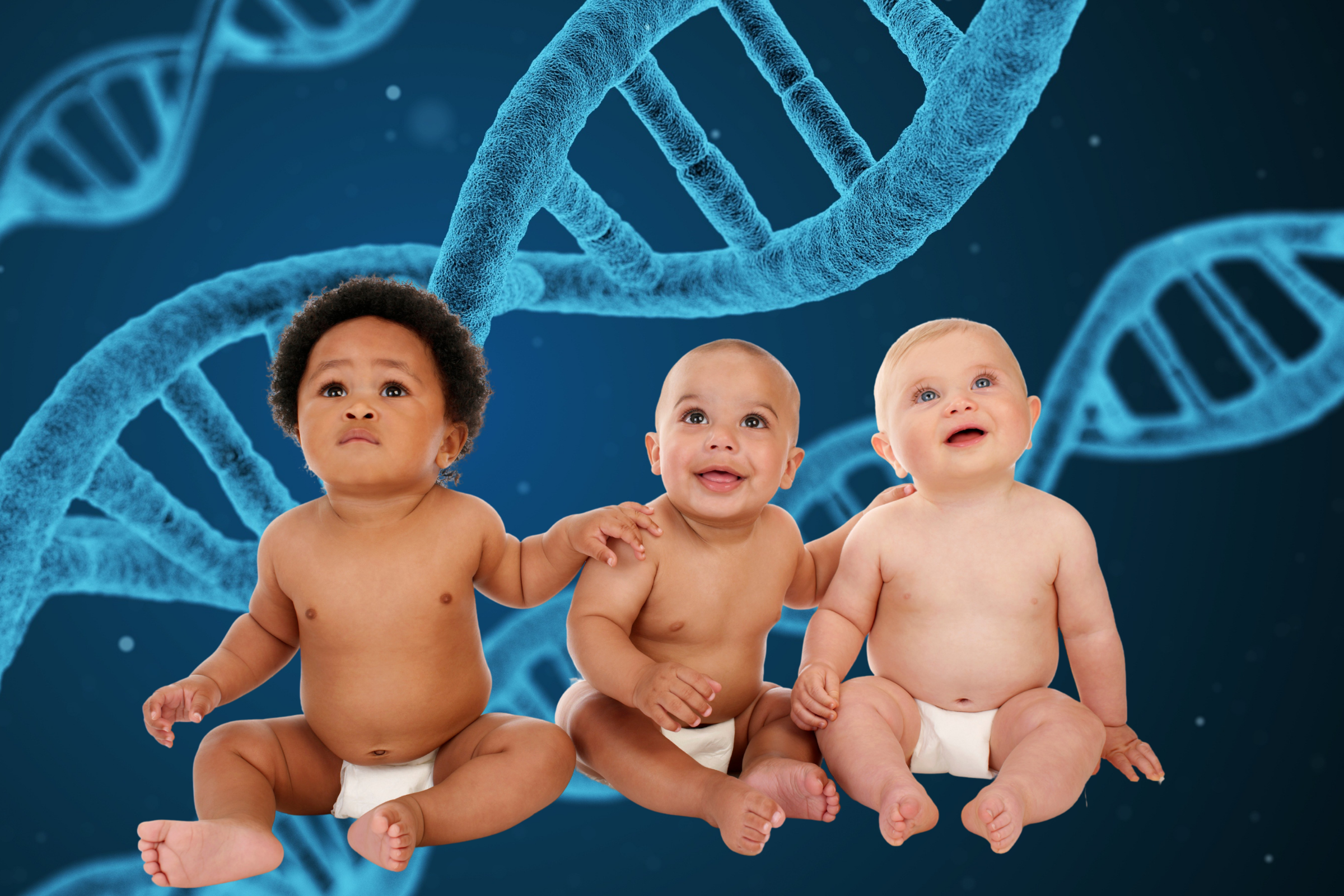
“Similar rates of genetic variants have been reported across demographic groups participating in the BabySeq1 and BabySeq2 projects, according to a new analysis presented at the National Society of Genetic Counselors annual meeting here last week.”
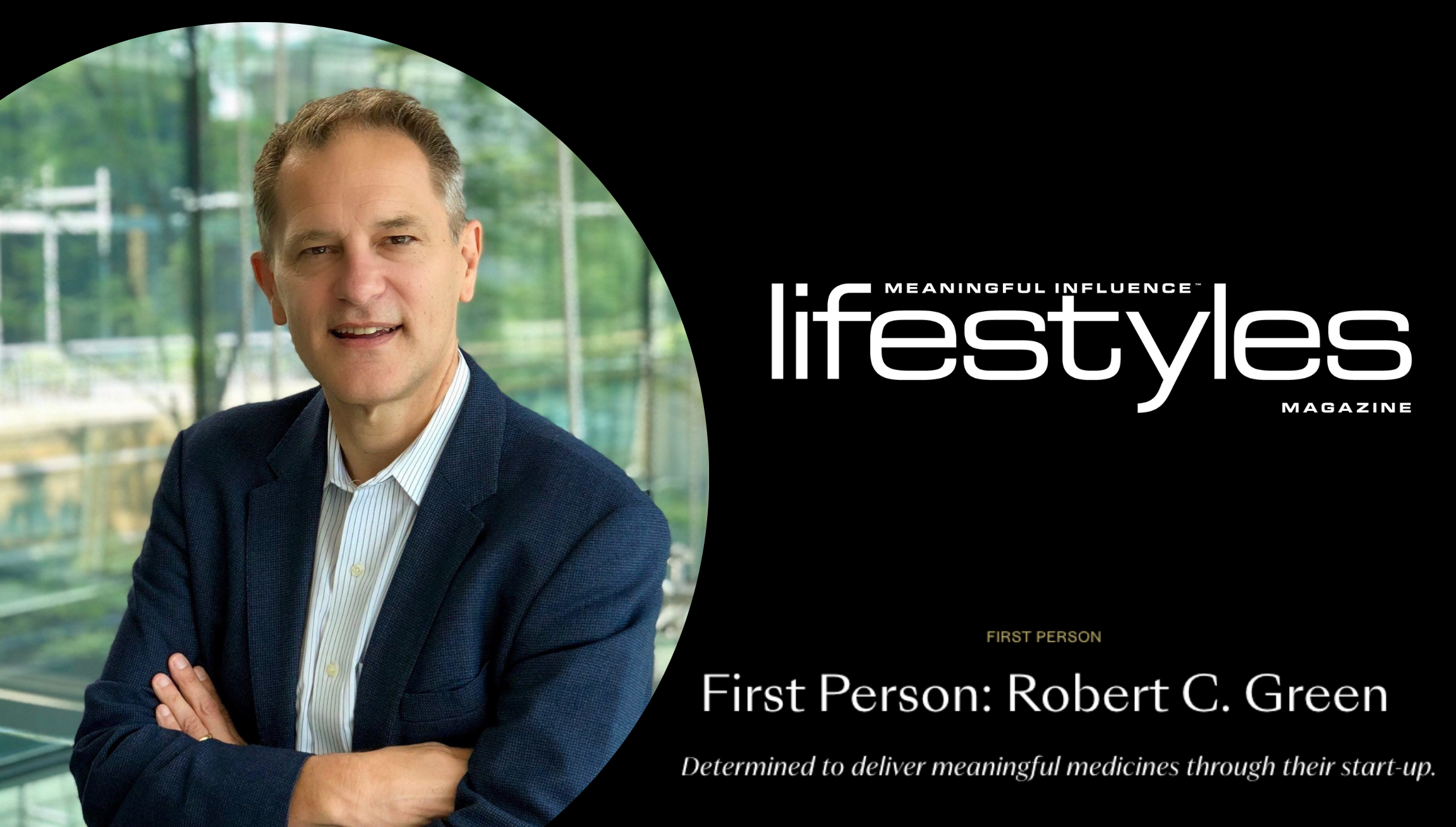
Robert C. Green, MD, MPH writes a piece for Lifestyles Magazine on the promise of preventive genomics. Dr. Green draws on his experience researching preventive genomics over the past 20 years and his experience launching Nurture Genomics, a start-up delivering genome sequencing to newborns and children.

In this recent editorial, Nature Medicine argues that every baby deserves access to genetic screening. There are currently several international studies underway—including the Generation Study, Guardian Study, and the BabySeq Project—that are evaluating the utility and challenges of implementing routine expanded newborn genetic screening. Nature Medicine concludes that while newborn sequencing has great potential to … Continued
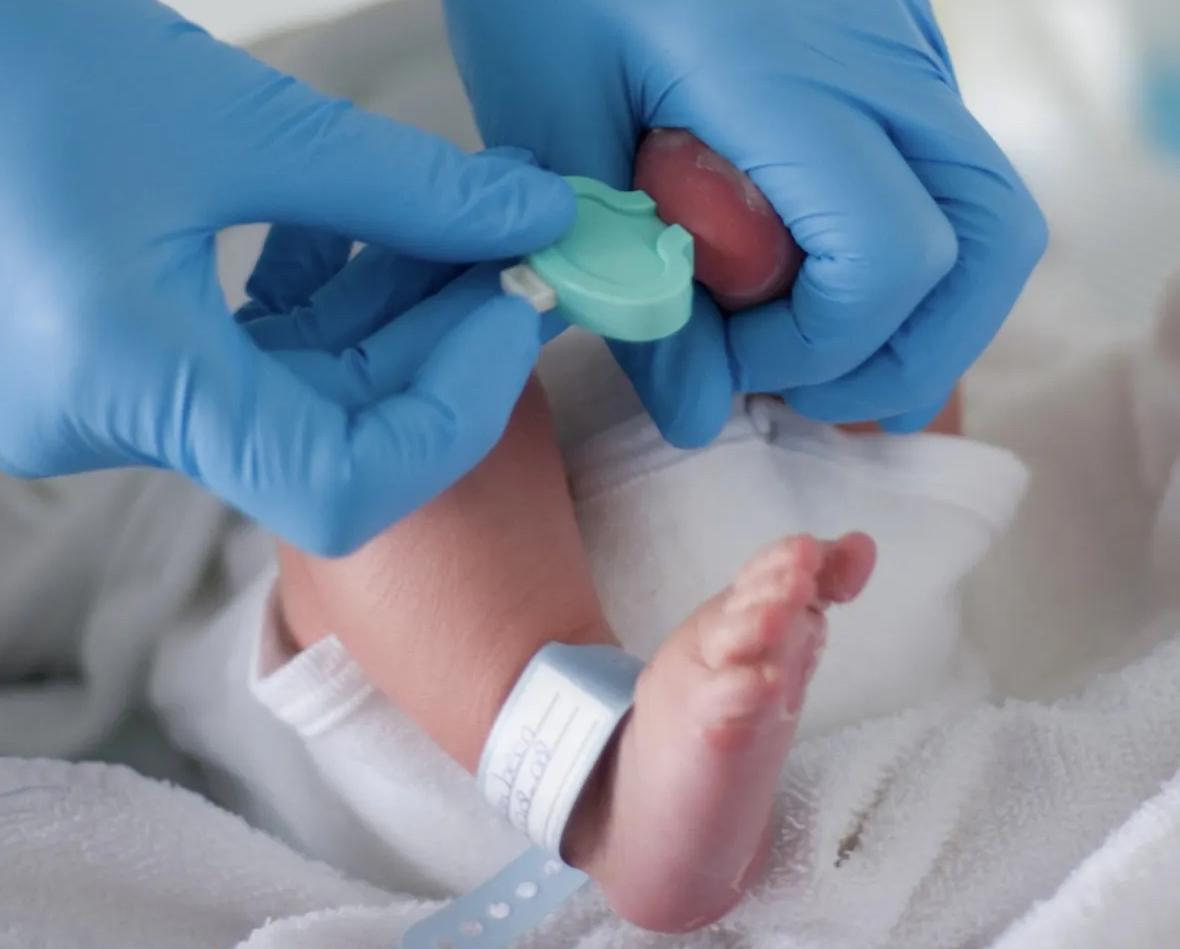
Visiting researcher, José Manuel González de Aledo Castillo, speaks on what newborn sequencing programs can learn from conventional newborn screening in his recent blog entitled “The Second Revolution of Newborn Screening.” He advocates for a future in which newborn sequencing and traditional newborn screening can work together in a complementary manner to ultimately reduce costs … Continued
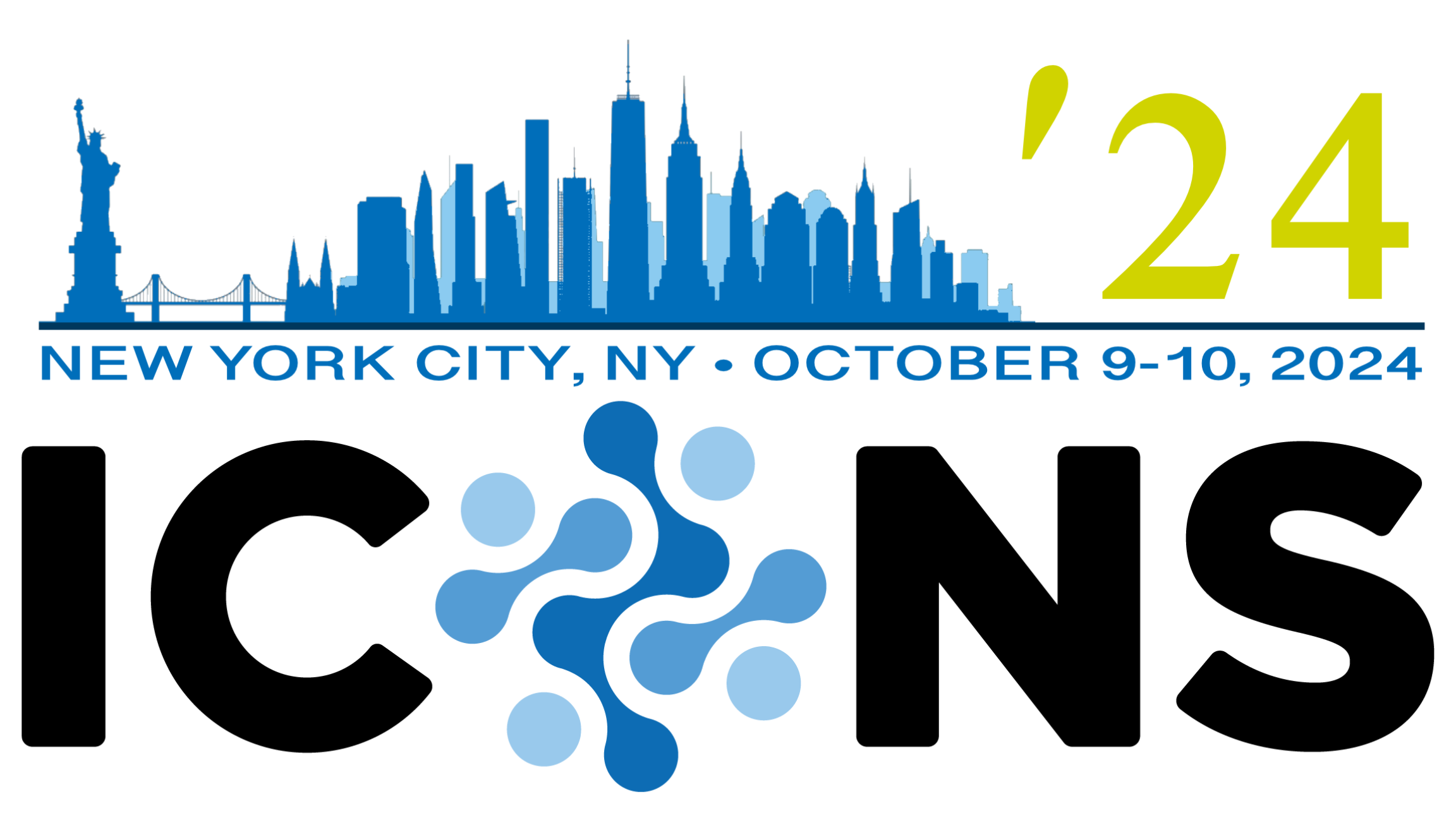
Our June newsletter highlights the upcoming International Conference on Newborn Sequencing and several stories from recent trainees! Other updates include two new publications from G2P team members, Sophia Adelson and Anna Lewis. Finally, we give a shout out to the members of our team who will be Running4Research at the upcoming 10K in Boston.
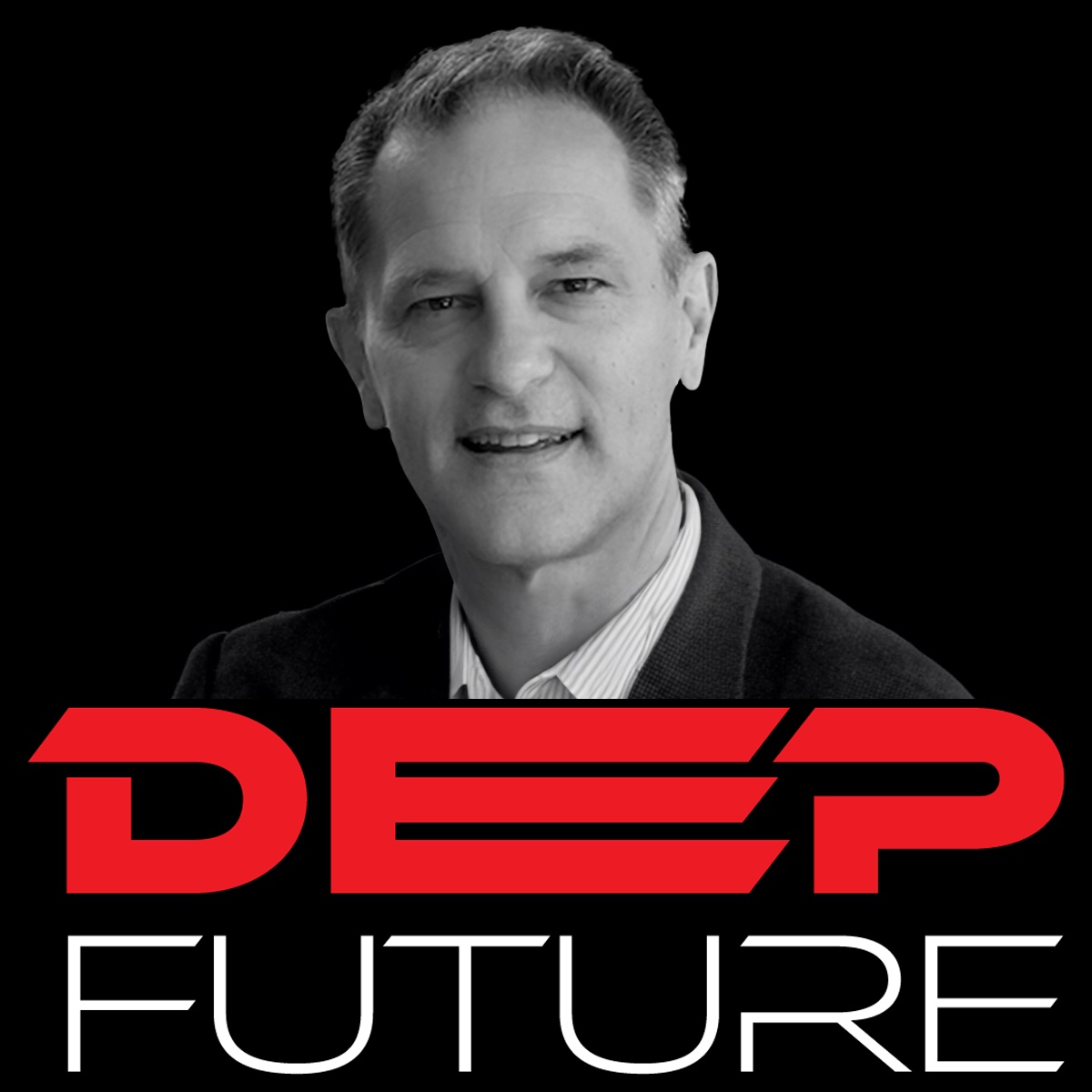
Robert Green joins Pablos Holman on the Deep Future podcast to discuss the promise of genome sequencing in children. He draws upon his work from the BabySeq Project and from his new start-up company, Nurture Genomics, where he uses genomic screening in infants to detect and mitigate actionable genetic conditions.

Will DNA tests like 23andMe actually help people live longer and healthier lives? This article dives into the promises and challenges of using DNA tests to improve health. Robert Green comments on his new company, Nurture Genomics, and explains that, “If you combine genetic risk with targeted care and surveillance for those individuals at higher … Continued
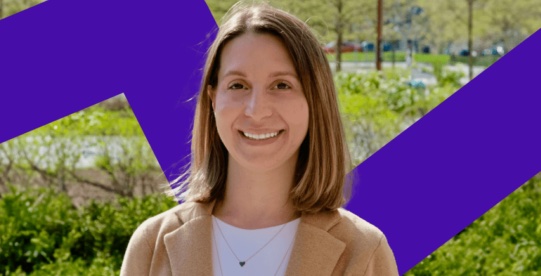
In this interview with the European Medical Journal, Dr. Nina Gold reflects on what inspired her career in pediatric genetics. She describes her work in clinical and research settings, particularly in the context of newborn genomic screening.
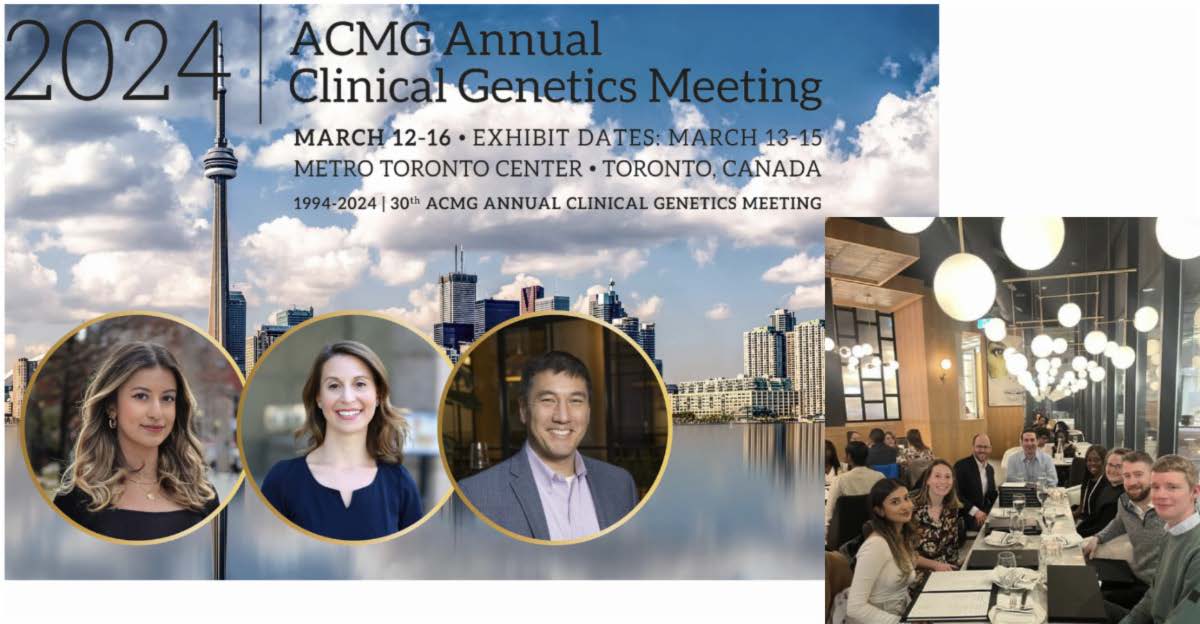
Genomes2People’s first newsletter of 2024 highlights presentations at the ACMG Annual Clinical Genetics Meeting from several G2P collaborators including Ilham Abbasi, Dr. Nina Gold, and Dr. Kurt Christensen. The piece also highlights Dr. Robert Green’s recent interview with CBS News on Rare Disease Day that showcases findings and stories from the BabySeq Project. The newsletter … Continued
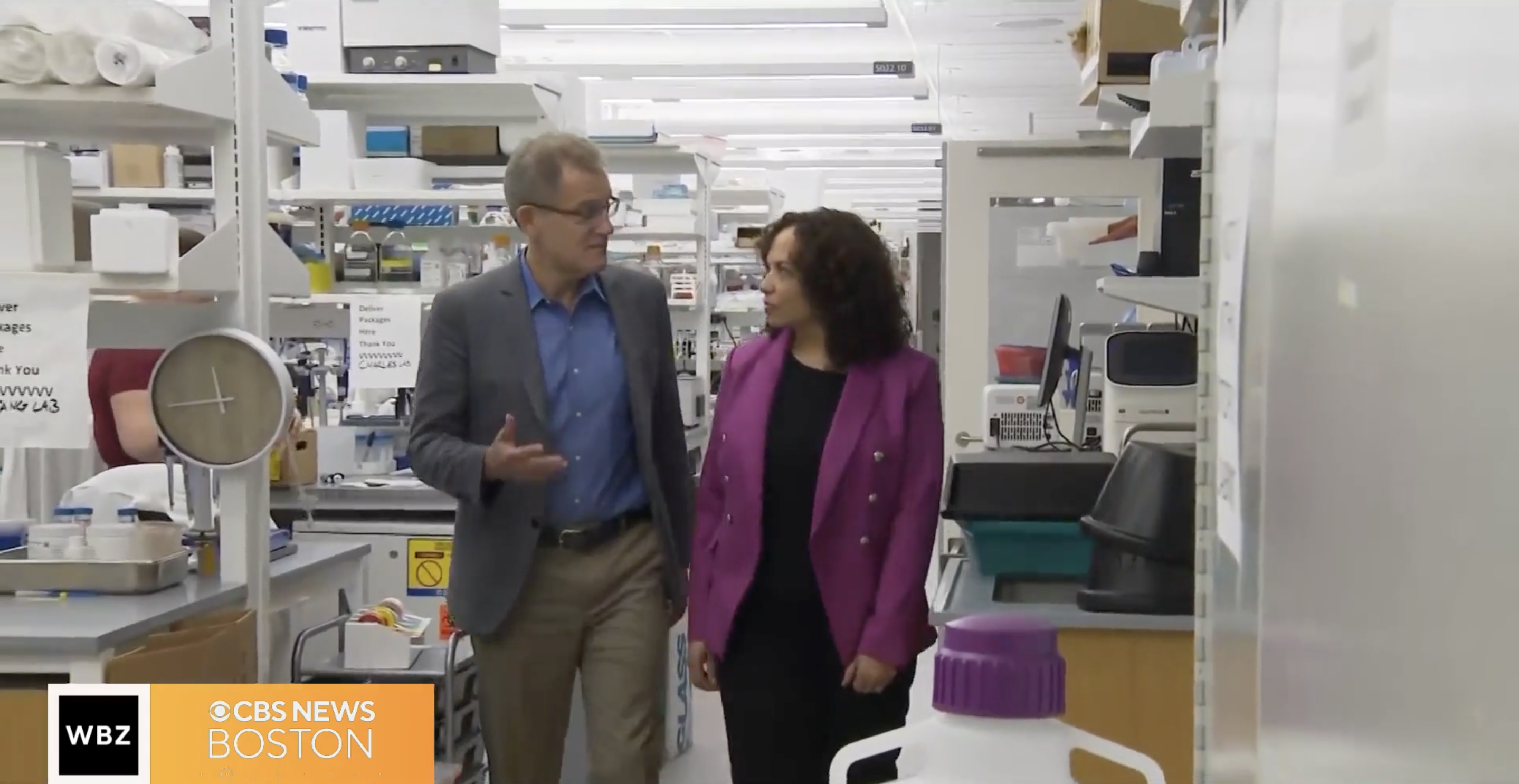
This Rare Disease Day, CBS News reports on the BabySeq Project in an interview with Dr. Robert Green and family participants from the project. Dr. Green shares how he hopes the attention will lead to more screening for genetic conditions in newborn babies.
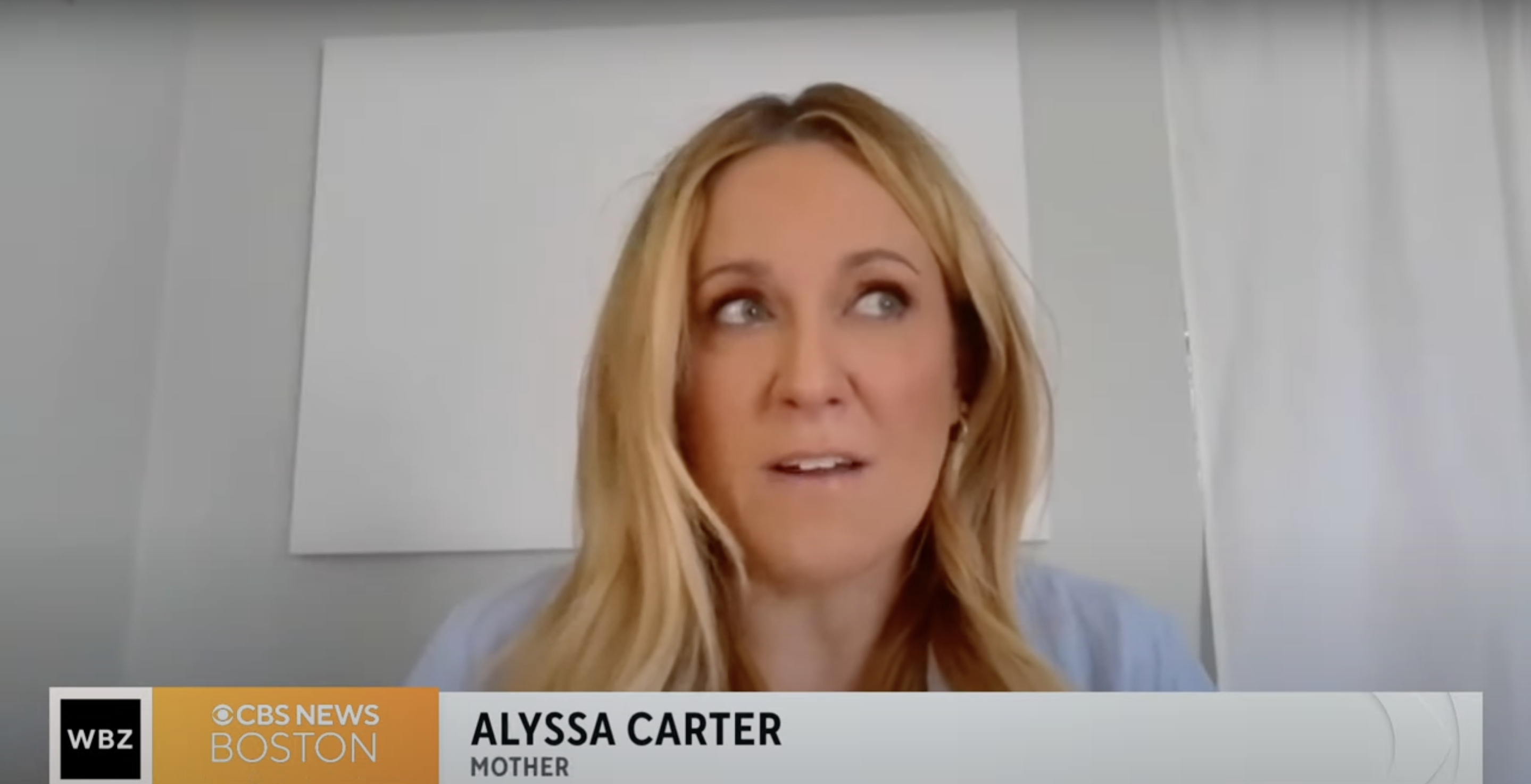
In this short video from CBS Boston, Dr. Robert Green shares findings from the BabySeq Project and makes the case for more screening of genetic diseases in newborns. Families who participated the BabySeq Project also share their stories.
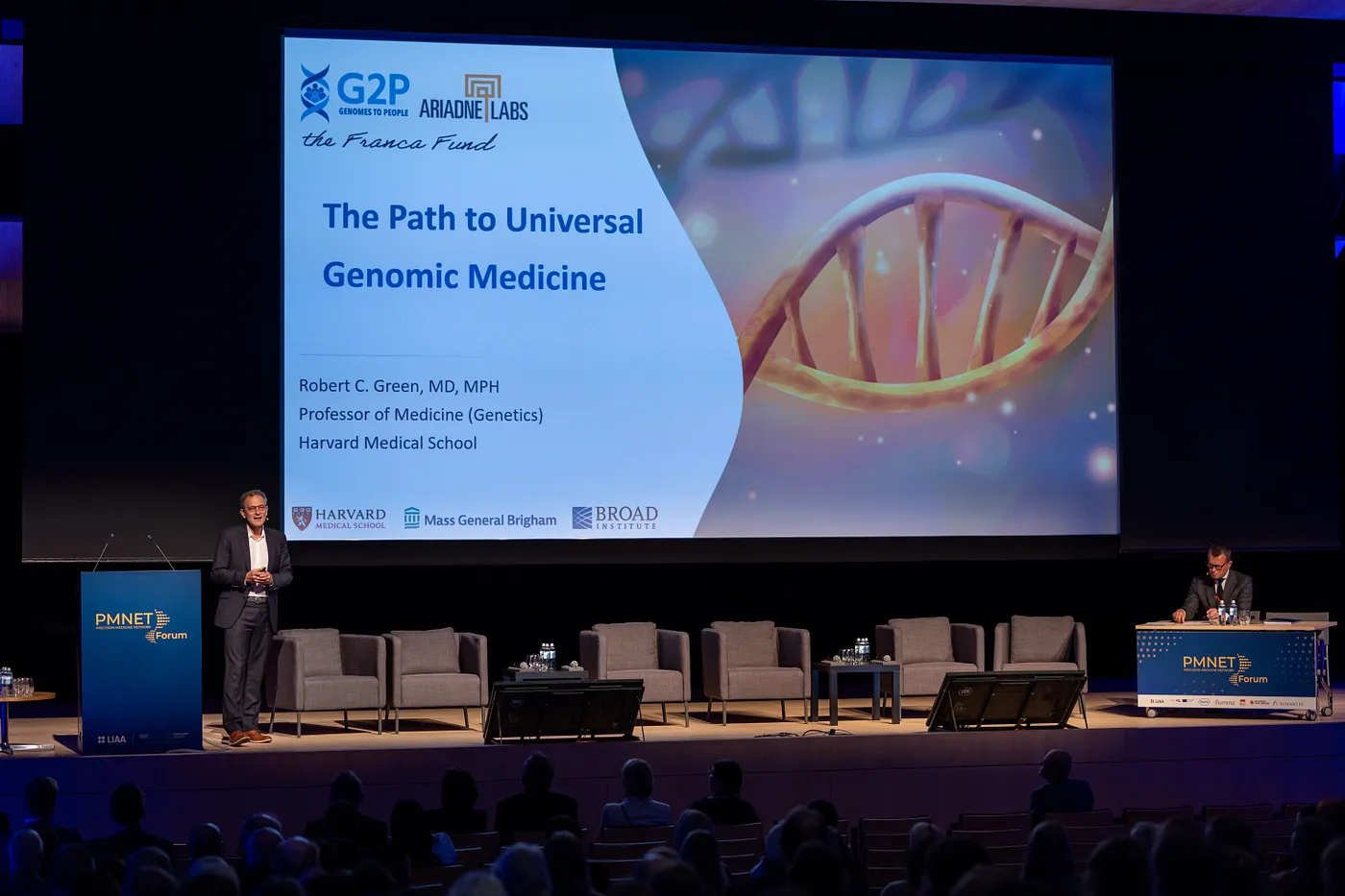
In this blog post, Dr. Robert Green poses the question: “What’s holding us back from doing more with preventive genomics in medicine?” Drawing on his recent keynote talk at the Precision Medicine Network (PMNET) Forum in Riga, Latvia, Dr. Green explores near-term applications of precision medicine using genetic testing such as: newborn and childhood sequencing, … Continued
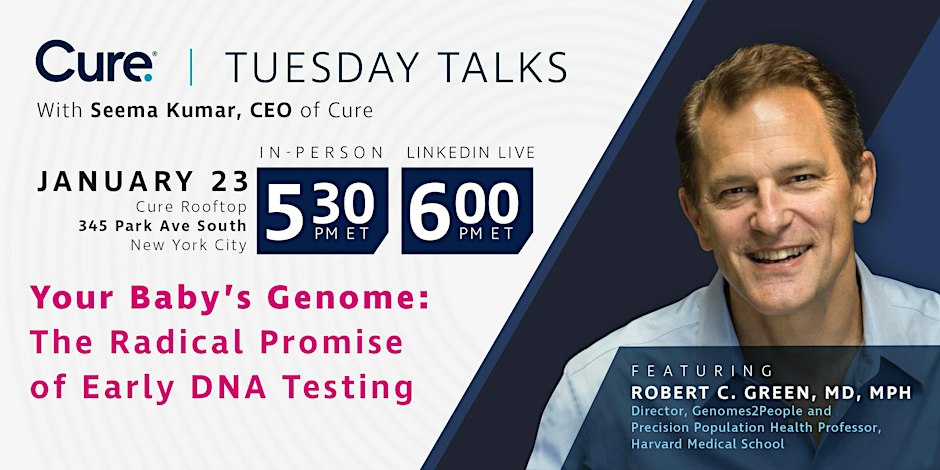
Robert Green is interviewed by Seema Kumar, Cure CEO about The Radical Promise of Early DNA Testing for human health and longevity. He shares results from the BabySeq Project and progress on building the new start-up company, Nurture Genomics.
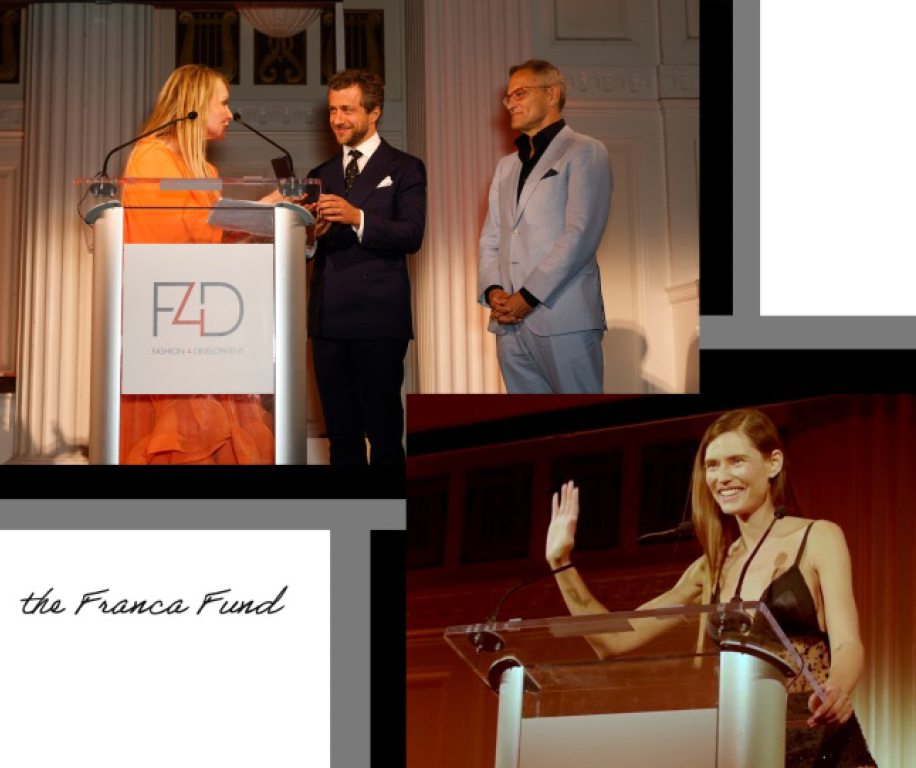
G2P’s final newsletter of 2023 celebrates the five year anniversary of The Franca Sozzani Fund for Preventive Genomics. Other highlights include the second annual meeting of the International Consortium on Newborn Sequencing (ICoNS) in London and the 2023 Advisory Board members of the year, Mike and Ann Marie Einziger. We also join Genomes2Veterans in celebrating … Continued
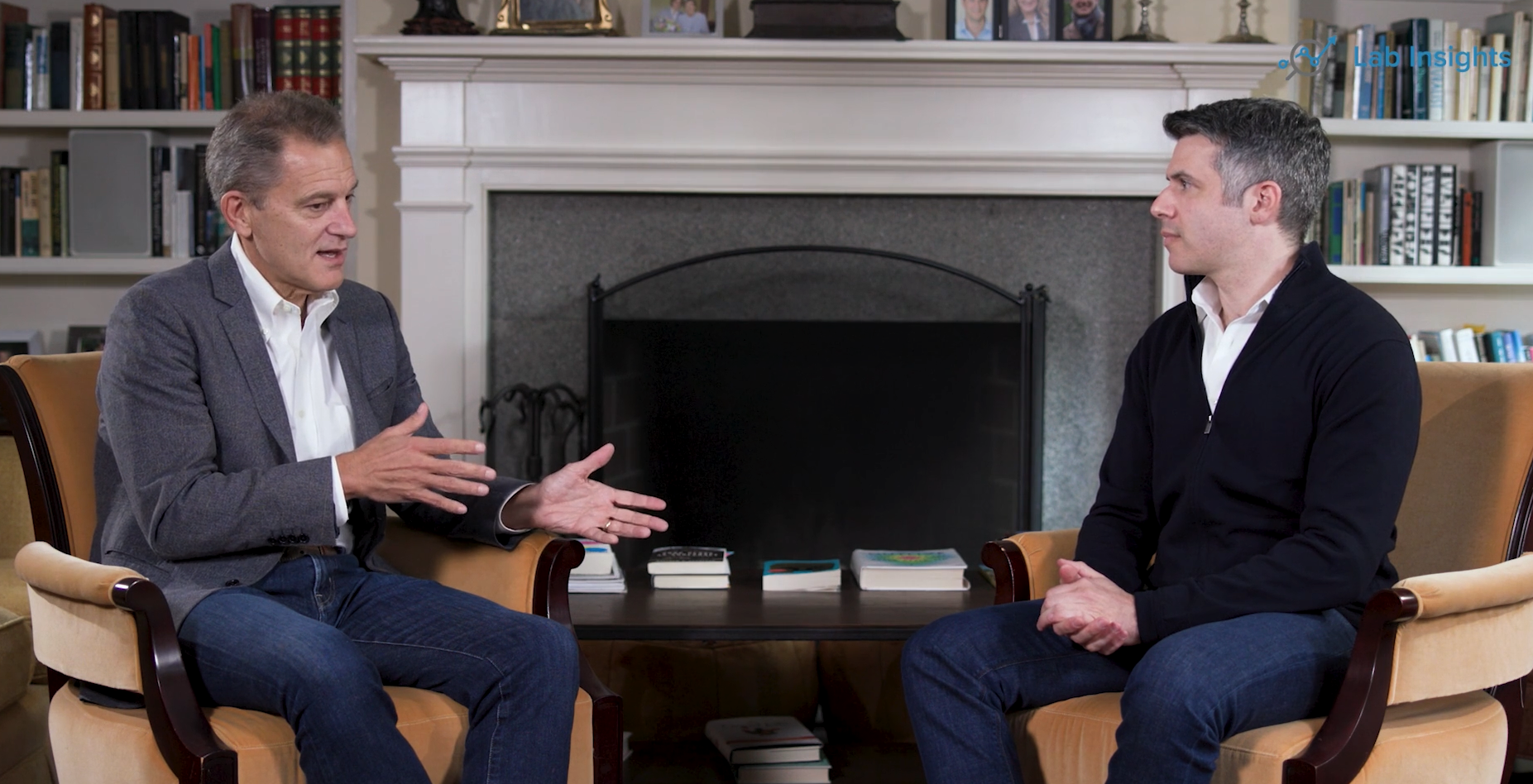
“In this Q&A with Will Greene, Healthcare Engagement Lead at Roche Diagnostics Asia Pacific, Dr Green talks about his pioneering work in newborn sequencing, including via the BabySeq project and the International Consortium on Newborn Sequencing (ICoNS), as well as his broader efforts to make genomic information actionable and accessible for people everywhere.”

“Robert Green, a professor at Harvard Medical School and co-PI of the BabySeq2 study, said the project picked the Broad lab as its sequencing provider, while the Mass General Brigham Laboratory for Molecular Medicine (LMM) is doing the genome interpretation. The project, which is currently recruiting, intends to enroll between 500 and 2,000 families over … Continued
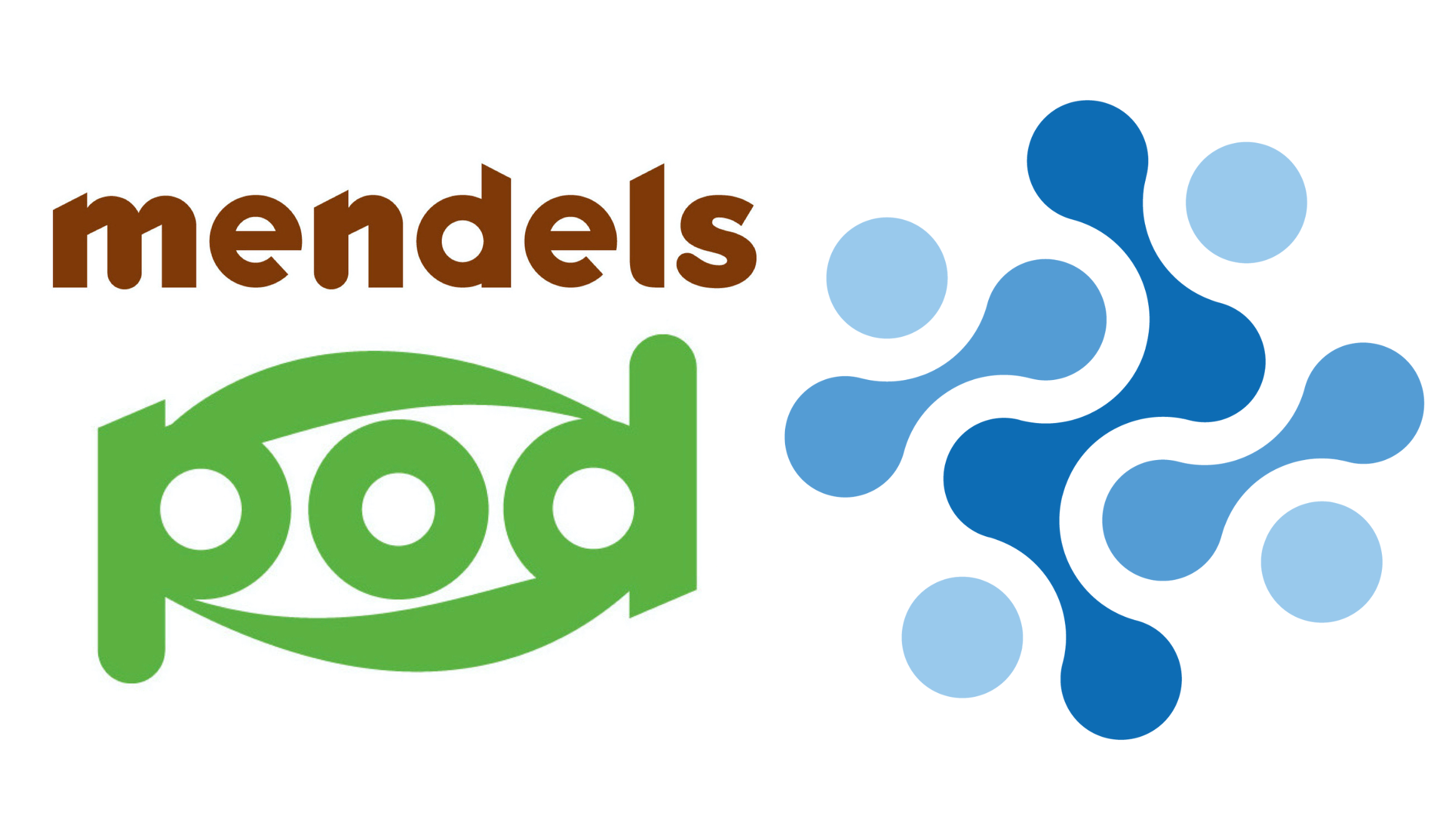
Julia Karow, Managing Editor at GenomeWeb; Robert Green, Director of Genomes2People and Co-Chair of the International Consortium on Newborn Sequencing (ICoNS); Wendy Chung, Chair of Pediatrics in Medicine at Boston Children’s Hospital and leader of the Guardian Study; and James Buchanan, Senior Lecturer in Health Economics at Queen Mary University in London, discuss takeaways and … Continued
Earlier this month, leading researchers and experts in genomics and newborn sequencing representing the U.S., the U.K., Europe, Australia, and the Middle East came together in London at the Royal Institution for the second annual International Conference on Newborn Sequencing co-hosted with Genomics England to present updates regarding their own research and share future plans.
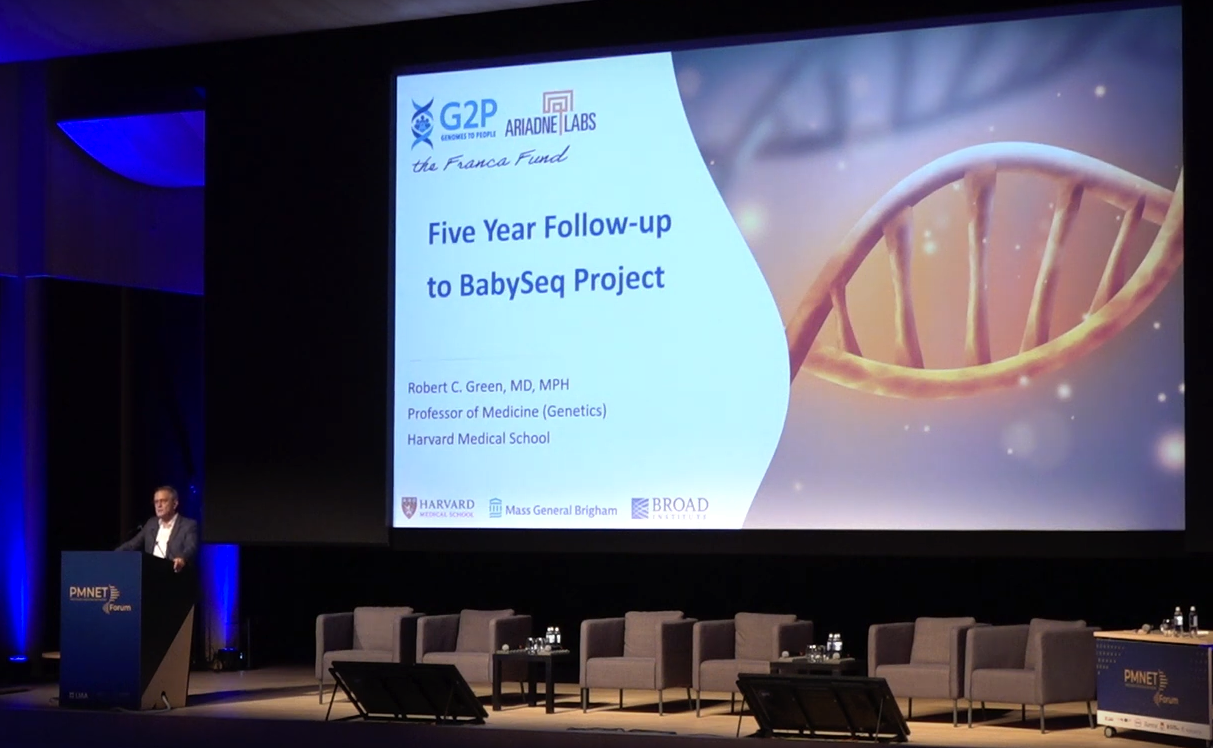
The 2023 Precision Medicine Network (PMNET) Forum was held on October 12-13, 2023 in Riga, Latvia. PMNET’s mission is to improve patient care and outcomes by promoting development and adoption of Precision Medicine. Robert Green gave a talk about the five year follow-up of the BabySeq Project.
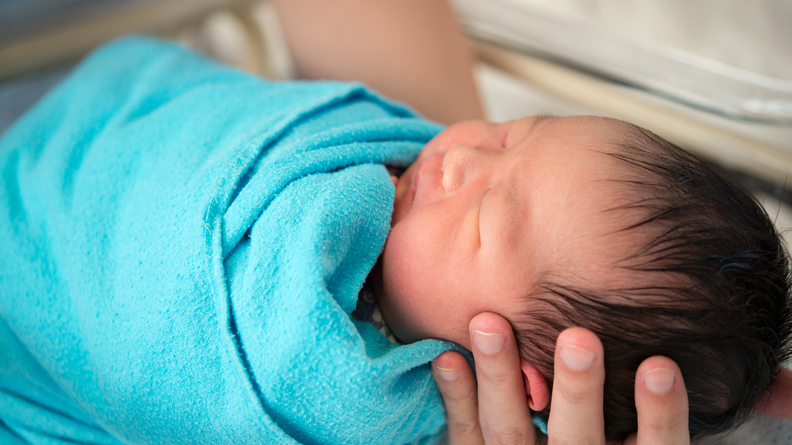
Last week a dozen newborn sequencing research programs from the US, the UK, Europe, Australia, and the Middle East shared progress updates and future plans at the second annual International Conference on Newborn Sequencing (ICoNS) in London. Robert Green and Ingrid Holm, co-PIs of the BabySeq2 study, shared enrollment updates from the second iteration of … Continued
At the 2023 International Conference on Newborn Sequencing (ICoNS), Dr. David Bick; Dr. Nidhi Shah, G2P collaborator; and Rose Heald, G2P team member, share plans to share and harmonize data amongst newborn sequencing projects internationally.